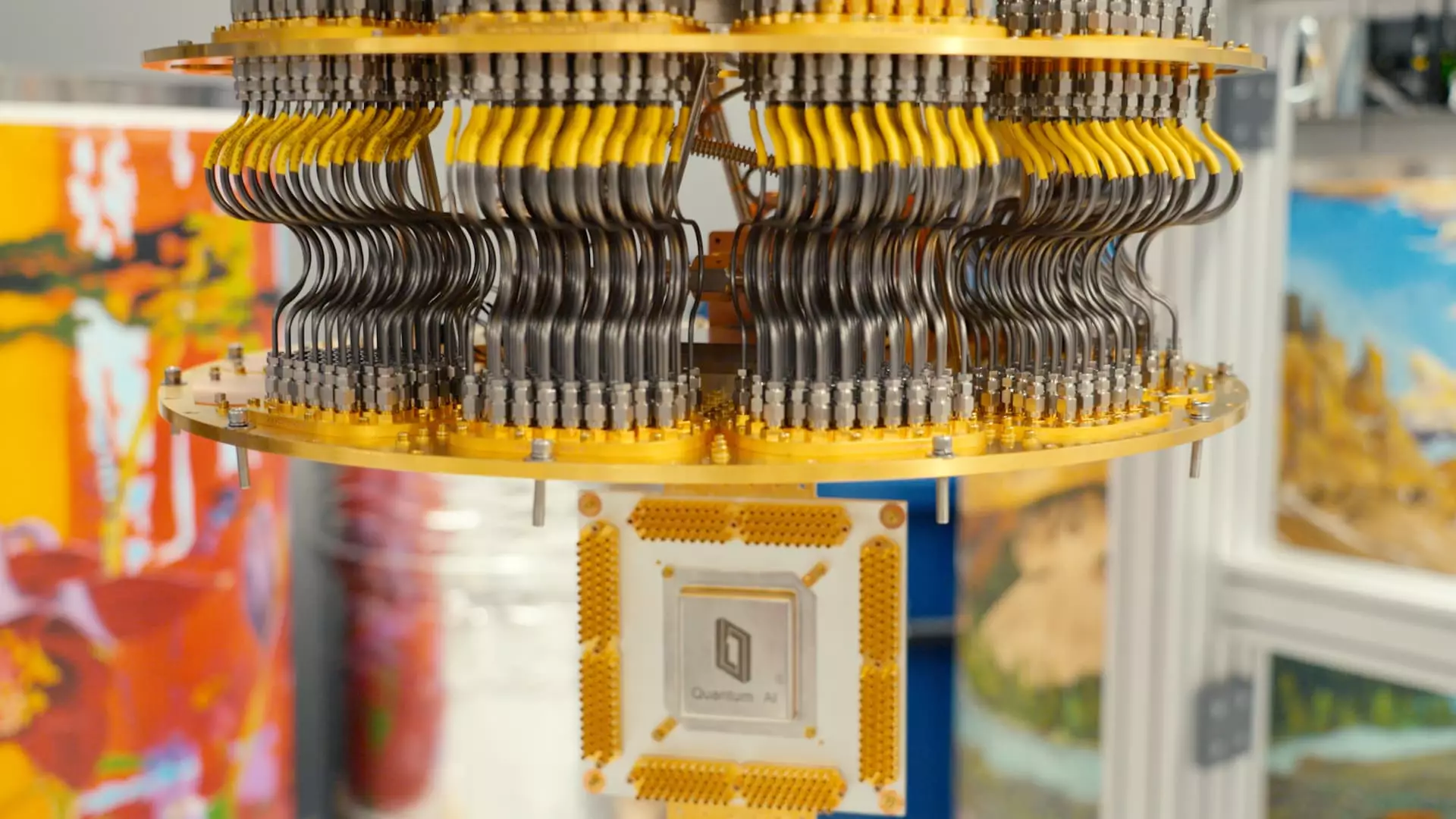In the technologically vibrant landscape of Santa Barbara, California, a subtle yet profound shift is underway at Alphabet’s research facility. Scientists are racing against time to unravel the complexities of quantum computing—an ambition that some deem as audacious as it is game-changing. The critical dialogue underway, spearheaded by innovators like Julian Kelly, the director of hardware at Google Quantum AI, emphasizes the impending synergy between quantum technology and artificial intelligence (AI). This fusion promises transformations that could redefine our digital existence, proving that the union of seemingly distinct realms can yield groundbreaking advancements.
Playing Catch-Up in the AI Arena
Despite its reputation as a technology titan, Google found itself in a precarious position when OpenAI’s ChatGPT stormed onto the scene in late 2022, garnering attention and acclaim that left others scrambling to respond. Acknowledging this delay, Google did not languish in self-pity; instead, it rapidly shifted gears, revealing a noteworthy breakthrough: the Willow quantum computing chip. This ambitious initiative exemplifies an attempt to reclaim its prominent standing in the high-tech arena by demonstrating capabilities that surpass traditional computing benchmarks. The immense potential behind the Willow chip is not merely a technical triumph; it symbolizes Google’s commitment to lead from the front in the emerging technological landscape.
Overcoming Barriers to Innovation
The significance of Willow extends beyond mere performance metrics; it represents a concrete step into a generation of computing that previously seemed like science fiction. As highlighted by John Preskill, director at the Caltech Institute for Quantum Information and Matter, the attainment of reduced error rates with scaled-up quantum bits can potentially revolutionize various industries. Such advancements could empower Google to navigate and potentially dominate the next technological frontier, a realm that necessitates not just speed but transformative capability.
Bridging Data Shortages with Quantum Capabilities
In an era when conventional AI models are beginning to struggle with data scarcity—a predicament that contradicts the limitless promises often associated with AI—quantum computing emerges as a key player capable of generating novel datasets. Kelly’s assertion that quantum computers could innovate data creation is substantial. Having witnessed the triumph of the AlphaFold project, which won its creators a coveted Nobel Prize by leveraging computational approaches informed by quantum mechanics, one can envision a future where quantum breakthroughs lead to a renaissance in AI training methods.
Looking Ahead: A Future of Possibilities
Enthusiasm for quantum technology coincides with strategic foresight. Kelly believes that practical applications utilizing quantum computers are approximately five years away, a timeline that, if met, could solidify Google’s role as a cornerstone of next-generation computing solutions. This forecast stirs excitement among tech enthusiasts and researchers alike, as quantum computing has the potential to not only enhance AI performance but also unravel new mysteries across scientific fields. As we stand on this precipice of change, the collaborative efforts of innovative minds at Google may very well chart a course toward a new era of digital exploration and discovery.

